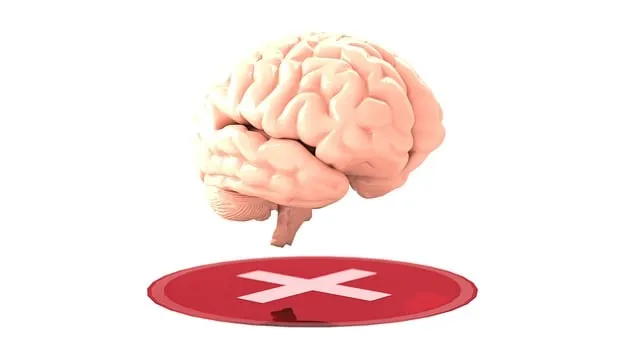The Wheat Ridge Kaiser Permanente behavioral health center is a leading provider of specialized mental health services, prioritizing comprehensive risk management through tailored strategies like Mind Over Matter and Emotional Intelligence. They address diverse patient needs, staff emotional well-being, and community stigma through open communication and conflict resolution, fostering a safe, supportive environment for improved mental wellness. Regular training, data analysis, and strategic adaptations ensure optimal patient care and safety at this revolutionary healthcare hub.
“In the sensitive field of mental health care, effective risk management is paramount to ensuring patient safety and well-being. This article explores comprehensive strategies tailored specifically for professionals at the Wheat Ridge Kaiser Permanente Behavioral Health Center. We delve into identifying risks, from staff stress to patient self-harm, and offer a structured approach to developing, implementing, and monitoring risk management plans. By adopting these practices, mental health providers can create a safer, more supportive environment.”
- Understanding Risk Management in Mental Health Care
- Identifying Potential Risks at the Wheat Ridge Kaiser Permanente Behavioral Health Center
- Developing a Comprehensive Risk Management Plan
- Implementing and Monitoring Strategies for Effective Risk Mitigation
Understanding Risk Management in Mental Health Care

Identifying Potential Risks at the Wheat Ridge Kaiser Permanente Behavioral Health Center

At the Wheat Ridge Kaiser Permanente Behavioral Health Center, identifying potential risks is a multifaceted endeavor that involves assessing various internal and external factors. The center, known for its bustling environment and dedicated professionals, faces unique challenges in managing mental health risks. These include navigating complex patient populations with diverse backgrounds and needs, ensuring emotional regulation among staff members, and addressing the pervasive issue of mental illness stigma within the community.
Conflict resolution techniques play a crucial role in mitigating these risks. By fostering open communication channels and implementing effective conflict management strategies, the center aims to create a safe, supportive environment. Additionally, Mental Illness Stigma Reduction Efforts are at the forefront of the center’s risk management planning. Through educational workshops, awareness campaigns, and collaborative initiatives, Wheat Ridge Kaiser Permanente Behavioral Health Center is dedicated to breaking down barriers and promoting understanding among both staff and patrons.
Developing a Comprehensive Risk Management Plan

At the Wheat Ridge Kaiser Permanente behavioral health center, developing a comprehensive risk management plan is an essential step in ensuring optimal patient care and well-being. This involves a systematic approach to identifying, assessing, and mitigating potential risks that mental health professionals may encounter in their practice. By integrating Mind Over Matter principles and leveraging Emotional Intelligence, healthcare providers can create a robust framework tailored to individual needs and unique challenges presented by each patient.
The plan should encompass various strategies, such as Mental Wellness Journaling Exercise Guidance, to promote self-reflection and emotional regulation among patients. Regular risk assessment meetings, coupled with open communication channels, enable professionals to promptly address concerns, adapt treatment modalities, and foster a safe, supportive environment that nurtures mental wellness. Through proactive planning and continuous evaluation, the Wheat Ridge Kaiser Permanente behavioral health center strives to revolutionize mental healthcare, ensuring that both professionals and patients thrive in an ever-evolving landscape of emotional well-being.
Implementing and Monitoring Strategies for Effective Risk Mitigation

Implementing effective risk mitigation strategies is a cornerstone of successful risk management planning for mental health professionals at institutions like the Wheat Ridge Kaiser Permanente behavioral health center. This involves a multifaceted approach, including regular staff training on emotional well-being promotion techniques and coping skills development. By equipping practitioners with the latest tools and knowledge, these programs empower them to anticipate and navigate potential risks in their practice environments.
Monitoring mechanisms play an equally crucial role in ensuring the continuity of risk management efforts. Regular reviews and data analysis allow mental health professionals to assess the effectiveness of implemented strategies, identify areas for improvement, and adapt their practices as needed. This dynamic approach fosters a culture of continuous improvement at institutions like Wheat Ridge Kaiser Permanente, ultimately enhancing patient care and safety.
Mental health professionals at the Wheat Ridge Kaiser Permanente behavioral health center can effectively navigate risks by adopting a structured risk management plan. By identifying potential hazards, such as patient self-harm or staff burnout, and implementing tailored strategies, the center can foster a safer and more supportive environment. Regular monitoring and adjustments to the risk management plan ensure its continued effectiveness, ultimately enhancing patient care and outcomes at this leading behavioral health facility.






